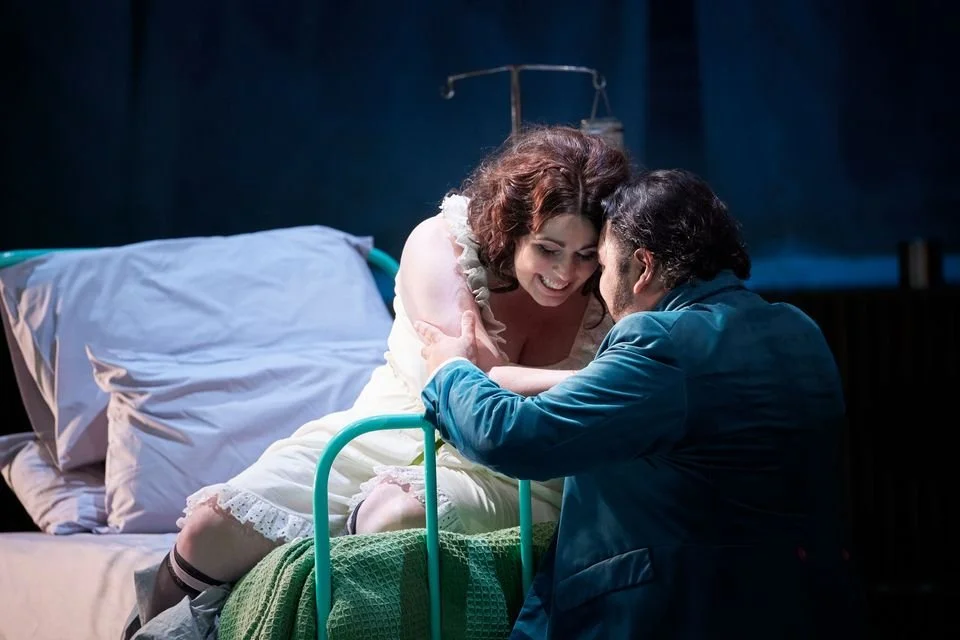Violetta — La Traviata
2024 performances
Irish National Opera | Dublin – Wexford – Cork, Ireland
Conductors: Killian Farrell, Fergus Sheil
Director: Olivia Fuchs
Reviews:
“American soprano Amanda Woodbury sang excellently as Violetta. The diaphanous beauty of her high notes captured not only Alfredo from the get-go but the audience too. Her acting was at its most convincing in the tragic moments where she revealed a raw, vulnerable edge to her character. Her declaration of “Amami, Alfredo” in Act 2 was heart-breaking while the delicate vibrato in the higher notes of “Ah, fors' è lui” was beautifully done. She executed the virtuosic gymnastics in “Sempre libera” with brilliance and her impassioned reconciliation with Alfredo was moving.”
— Andrew Larkin, Bachtrack
“Soprano Amanda Woodbury is a gorgeous, heartfelt Violetta, with an intense acting style.
[…]
So this is a straight-up version, with Woodbury’s touching voice at its heart. I’d prefer a production with more contemporary bite, but Verdi lovers will get what they want — a heartfelt drama delivered with musical richness and emotional clarity.”
— Katy Hayes, The Irish Independent
“With […] soprano Amanda Woodbury as Violetta, the lead roles are in more than safe hands — particularly those of Woodbury, whose lyrical range truly soars to the demands the composer makes for the role.
In particular, as courtesan Violetta descends into despair in Act Two on the realisation that she is doomed to an early and lonely death from consumption, and estranged from her jealous lover due to his father’s pious rejection of having a former prostitute as his daughter-in-law, Woodbury’s tone thins into a heartbroken wail. It is a piercingly desolate sound that never becomes shrill: it is the vocal personification of hope disappearing forever.”
— Emer O'Kelly, The Irish Independent
“Verdi, of course, places the greatest demands in range, dynamics and high-flying agility on Violetta, and Amanda Woodbury meets every challenge with strength and colour. The soprano’s voice dances through the famous drinking song in act one, graphically encapsulates the sudden rupture of happiness caused by Germont’s intervention in act two, and moves from whispered pianissimo to monumental declamation in the climax of act three.”
— Michael Dungan, The Irish Times
Photography by Ros Kavanagh






